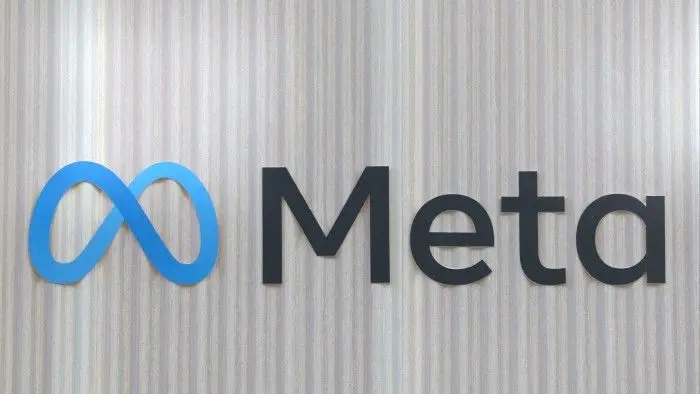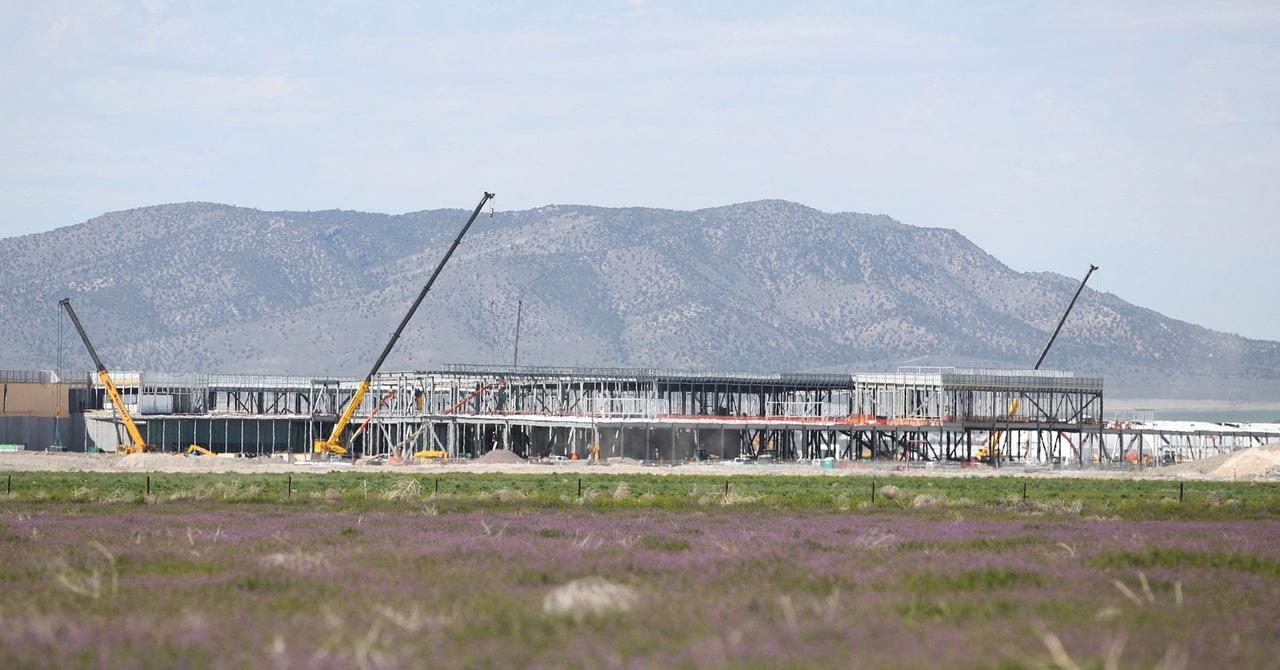Meta's AI Server Accounting Change Set to Boost 2025 Profits by Billions
2 Sources
2 Sources
[1]
Meta's accounting move on AI servers to boost profit this year
Meta Platforms Inc. made a small change last month that's likely to increase the company's profit by billions of dollars this year. It wasn't the release of a new product or cost cuts. It was a tweak to an accounting formula used to measure the depreciation of its expensive artificial intelligence infrastructure. The change, disclosed in the social-media giant's earnings materials on Jan. 29, extends the so-called useful life period of certain servers and networking assets to five and a half years, from the four to five years it previously used. While that may sound trivial, its impact on earnings will be sizable given the heavy spending on these relatively short-lived assets. By Meta's reckoning, the shift is expected to reduce the company's depreciation expense by $2.9 billion in 2025, which would, on its own, amount to almost 4% of the estimated pre-tax profits for the year. With Meta planning to spend as much as 75% more this year on capital expenditures to build out its AI capabilities, the effect will be even bigger in 2026. The changing expectations highlight how companies are grappling with the temporary shelf life of the tens of billions of dollars of new semiconductors and computers servers they are purchasing to power their AI services. Meta is now hoping that the equipment will last longer than they had expected. "While there may be legitimate reasons to extend the server life based on their actual experience, it also decreases the depreciation in the short run and improves the bottom line," said Ravi Gomatam, partner at tax and accounting firm Zion Research Group. Meta's chief financial officer, Susan Li, said on the most recent earnings call that the company is making efficiency gains "by extending the useful lives of our servers and associated networking equipment." A Meta representative declined to comment. Meta isn't alone in changing its timetable on depreciation -- and with it, the financial results. In 2022, Microsoft Corp. extended the useful lives of server and networking equipment to six years from four. In 2023, Oracle Corp. extended its estimate to five years, from four, according to a filing. Others, however, have taken the opposite approach. Amazon.com Inc. said this month that the lifespan of the equipment is growing shorter -- from six years to five. The change, which took effect on Jan. 1, will cut operating income by about $700 million, the company said in a filing. Unlike real estate, where amortization is spread out over decades, computing and networking gear lose their value much more quickly. The reason is simple: buildings tend to hold their value over long periods; the pace of technology advancement, on the other hand, is so fast that even the most recent models become obsolete in a matter of years, much like an old iPhone. "It's the number one number that they can adjust back out because it's not a cash expense," said Francine McKenna, an accounting expert and newsletter author. "It's a big deal in capital intensive companies and in companies that are technologically dependent, where it's a competitive advantage." With companies like Meta, Microsoft, Amazon, and Alphabet Inc. pledging to boost capital expenditures this year by tens of billions of dollars, those depreciation expenses threaten to be an increasingly big drag on profits in coming years. Those four companies are expected to spend about $300 billion on capital expenditures in 2025, up from $217 billion in 2024, according to data compiled by Bloomberg. Bank of America estimates the spending will be a 1.6 percentage point drag on the companies' margins for earnings before interest and taxes in 2026 compared with the fourth quarter of 2024, strategists Ohsung Kwon and Savita Subramanian wrote in a research note on Feb. 10. None of this seems to be concerning investors, who have been focused on the potential growth from the AI operations. Meta's stock is on a record-breaking 17-day winning streak.
[2]
Meta's Accounting Move on AI Servers to Boost Profit This Year
Meta Platforms Inc. made a small change last month that's likely to increase the company's profit by billions of dollars this year. It wasn't the release of a new product or cost cuts. It was a tweak to an accounting formula used to measure the depreciation of its expensive artificial intelligence infrastructure.
Share
Share
Copy Link
Meta Platforms Inc. has made a significant accounting change, extending the useful life of its AI servers, which is expected to reduce depreciation expenses and increase profits by billions in 2025. This move highlights the financial implications of AI infrastructure investments for tech giants.

Meta's Accounting Shift: A Billion-Dollar Impact on AI Infrastructure
Meta Platforms Inc. has implemented a subtle yet financially significant change in its accounting practices, which is set to boost the company's profits by billions of dollars in 2025. This adjustment, disclosed in Meta's earnings materials on January 29, 2025, involves extending the "useful life" period of certain servers and networking assets from 4-5 years to 5.5 years
1
.The Financial Implications
The accounting tweak is expected to reduce Meta's depreciation expense by $2.9 billion in 2025, which could amount to almost 4% of the estimated pre-tax profits for the year. Given Meta's plans to increase capital expenditures by up to 75% this year to build out its AI capabilities, the effect is likely to be even more substantial in 2026
1
.Industry-Wide Trend
Meta isn't alone in adjusting its depreciation schedules for AI infrastructure:
- Microsoft extended the useful lives of its server and networking equipment to six years from four in 2022.
- Oracle increased its estimate to five years from four in 2023.
- Conversely, Amazon.com recently shortened its equipment lifespan from six years to five, effective January 1, 2025, which will reduce operating income by about $700 million
1
.
The AI Infrastructure Race
The changing expectations underscore how tech companies are grappling with the temporary shelf life of the billions of dollars worth of new semiconductors and computer servers they're purchasing to power AI services. Meta, like its peers, is hoping that this equipment will last longer than initially anticipated
1
.Financial Impact on Tech Giants
With Meta, Microsoft, Amazon, and Alphabet Inc. pledging to boost capital expenditures by tens of billions of dollars in 2025, depreciation expenses could significantly impact profits in the coming years. These four companies are expected to spend about $300 billion on capital expenditures in 2025, up from $217 billion in 2024
1
.Related Stories
Expert Opinions
Ravi Gomatam, partner at Zion Research Group, commented on the move: "While there may be legitimate reasons to extend the server life based on their actual experience, it also decreases the depreciation in the short run and improves the bottom line"
1
.Francine McKenna, an accounting expert, emphasized the significance of depreciation adjustments: "It's the number one number that they can adjust back out because it's not a cash expense. It's a big deal in capital intensive companies and in companies that are technologically dependent, where it's a competitive advantage"
1
.Investor Reaction
Despite the potential long-term implications of these accounting changes and increased capital expenditures, investors seem unfazed. They remain focused on the potential growth from AI operations, as evidenced by Meta's stock experiencing a record-breaking 17-day winning streak
1
.As tech giants continue to invest heavily in AI infrastructure, the financial community will be closely watching how these accounting practices evolve and impact the bottom line of major players in the AI race.
References
Summarized by
Navi
Related Stories
Meta Boosts AI Spending and Reports Strong Q1 Results, Signaling Confidence in AI Strategy
01 May 2025•Business and Economy

Meta's Q2 2024 Earnings Surpass Expectations, Boosting Stock and Outlook
31 Jul 2024

Meta's $30 Billion AI Gamble: Tech Giant Faces Investor Backlash Over Massive Infrastructure Spending
30 Oct 2025•Business and Economy

Recent Highlights
1
Pentagon threatens to cut Anthropic's $200M contract over AI safety restrictions in military ops
Policy and Regulation

2
ByteDance's Seedance 2.0 AI video generator triggers copyright infringement battle with Hollywood
Policy and Regulation

3
OpenAI closes in on $100 billion funding round with $850 billion valuation as spending plans shift
Business and Economy





